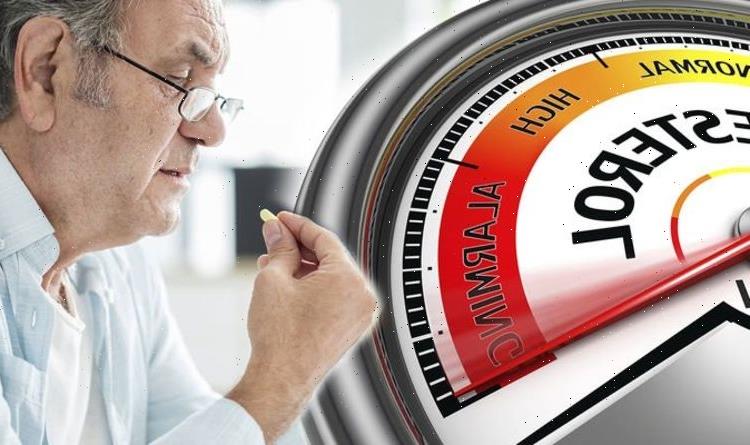High cholesterol: Nutritionist reveals top prevention tips
We use your sign-up to provide content in ways you’ve consented to and to improve our understanding of you. This may include adverts from us and 3rd parties based on our understanding. You can unsubscribe at any time. More info
Cholesterol is a waxy, fat-like substance that your liver produces. Although vital for the formation of cell membranes, vitamin D and certain hormones, cholesterol can be bad. This ‘bad cholesterol’ is known as low-density lipoproteins (LDL) and a serious build up can lead to incredibly serious health conditions such as heart attacks and strokes. Two daily supplements alongside a healthy diet, could significantly lower your levels and associated risks.
Niacin
As a potential cholesterol-lowering treatment, there are good studies showing that niacin can boost levels of good HDL cholesterol and lower triglycerides.
Niacin is a B vitamin and is a supplement sometimes suggested by GPs to patients with high cholesterol or heart concerns.
Niacin also modestly lowers ‘bad’ LDL cholesterol.

In fact, one study found niacin helped to lower levels of ‘bad’ LDL cholesterol by 5 to 20 per cent and raise ‘good’ HDL cholesterol by 15 to 35 per cent.
It’s sometimes prescribed in combination with statins for cholesterol control, including rosuvastatin, simvastatin, atorvastatin and pravastatin.
The recommended dosage of niacin for men is 16mg daily and for women, 14mg daily.
DON’T MISS:
Red yeast rice
Red yeast rice might contain compounds that appear to lower cholesterol levels, said Mayo Clinic.
The health site added: “One of the compounds is monacolin K, the same ingredient that is in the prescription cholesterol-lowering drug lovastatin (Altoprev).
“As an oral supplement, people take red yeast rice for high cholesterol and heart disease.
“Research shows that red yeast rice containing considerable amounts of monacolin K can lower your total blood cholesterol level, your low-density lipoprotein (LDL, or “bad”) cholesterol level and your triglyceride level.”

In a study published in The American Journal of Clinical Nutrition, the cholesterol-lowering effects of red yeast rice was investigated.
The study noted: “We evaluated the lipid-lowering effects of this red-yeast-rice dietary supplement in US adults separate from effects of diet alone.
“Subjects were treated with red yeast rice or placebo and instructed to consume a diet providing 30 percent of energy from fat from saturated fat, and 300 mg cholesterol daily.
“Main outcome measures were total cholesterol, total triacylglycerol, and HDL and LDL cholesterol measured at weeks eight, nine, 11 and 12.”
HDL cholesterol gets rid of bad cholesterol in your blood and it takes cholesterol that is not needed back to your liver so it can be broken down and passed out of your body.
Non-HDL cholesterol is bad because when there is too much of it, it can build up inside the walls of the blood vessels, clogging them and narrowing your arteries.
Triglycerides are a type of fat stored in the body’s fat cells.
They contribute to the narrowing of your artery walls, increasing your risk.
Source: Read Full Article
